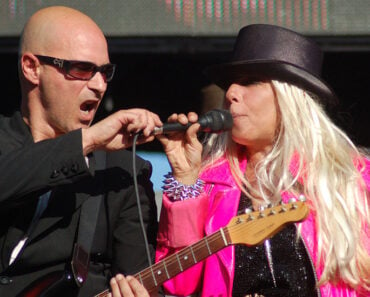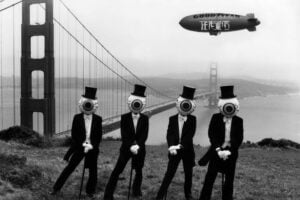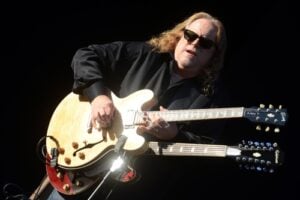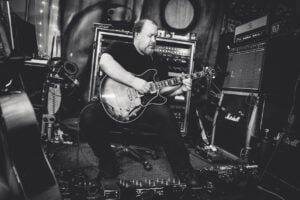
Feature Photo: Geoffrey Clowes / Shutterstock.com
Whenever I think of the Counting Crows, I remember their spectacular performance when they were first starting out on Saturday Night Live. The cast goofed on them a little because Adam was taking it very seriously. It turned out that performance was so good because he took it so seriously. The Counting Crows were formed in Berkeley, California, in 1991. Known for their dynamic live performances and the introspective lyrics of frontman Adam Duritz, the band achieved significant fame with their 1993 debut album “August and Everything After,” which featured the hit single “Mr. Jones.” Over the years, Counting Crows have released seven studio albums and several live recordings, contributing notably to the alternative rock scene of the 1990s and 2000s. Their accolades include an Academy Award nomination for “Accidentally in Love,” which was featured in the movie “Shrek 2,” and they have enjoyed sustained chart success and a loyal fanbase throughout their career.
Adam Duritz
Adam Duritz is the founding member, lead vocalist, and primary songwriter of Counting Crows. Since the band’s inception in 1991, Duritz’s distinctive voice and emotionally charged lyrics have been a defining feature of the band’s music. He has appeared on all their albums and is known for his complex, poetic lyrics. Outside of Counting Crows, Duritz has collaborated with other artists and has been involved in various film and music projects.
David Bryson
David Bryson, the co-founder and guitarist of Counting Crows, has played a significant role in shaping the band’s sound. Bryson has been with the band since its start and has contributed to all albums. His guitar work complements Duritz’s vocals, contributing to the band’s signature sound. Before Counting Crows, Bryson was a member of the band Mr. Dog, where he first collaborated with Duritz.
Charles Gillingham
Charles Gillingham joined Counting Crows as a keyboardist in 1991, shortly after the band’s formation. His keyboard and accordion playing are integral to the band’s music, featured prominently on all their albums. Gillingham’s musical arrangements have helped define the band’s rich, layered sound. He has also contributed background vocals and has been involved in producing music.
Dan Vickrey
Dan Vickrey joined Counting Crows as a lead guitarist in 1994, shortly before the recording of their second album, “Recovering the Satellites.” Vickrey’s guitar playing added a new dimension to the band’s sound, contributing significantly to subsequent albums. His backing vocals and occasional songwriting have also been vital to the band’s evolving style.
Ben Mize
Ben Mize was the drummer for Counting Crows from 1994 until 2002. He joined prior to the recording of “Recovering the Satellites” and played on subsequent albums through “Hard Candy.” His drumming was crucial in developing the band’s sound during his tenure. Mize left the band to focus on family and other personal pursuits.
Jim Bogios
Jim Bogios joined Counting Crows as the drummer in 2002, replacing Ben Mize. He has been featured on the albums released since his joining, including “Saturday Nights & Sunday Mornings.” His dynamic drumming style has been essential for the band’s live performances and studio recordings.
Millard Powers
Millard Powers joined Counting Crows as the bassist and backing vocalist in 2005. Powers’ experience and musicianship brought stability to the band’s rhythm section, and he has contributed to albums and live tours since his joining. His background in various music genres has enriched the band’s sound.
Matt Malley
Matt Malley was the original bassist for Counting Crows, playing from their formation until 2005. His bass lines are heard on many of the band’s most successful albums, including “August and Everything After” and “This Desert Life.” Malley left the band to pursue other interests, including solo projects.
Steve Bowman
Steve Bowman was the original drummer for Counting Crows, playing from 1991 to 1994. His drumming is featured on the band’s debut album, “August and Everything After.” Bowman’s style helped shape the band’s early sound but he left after the first album to pursue other opportunities.
Read More: Top 10 Counting Crows Songs



































